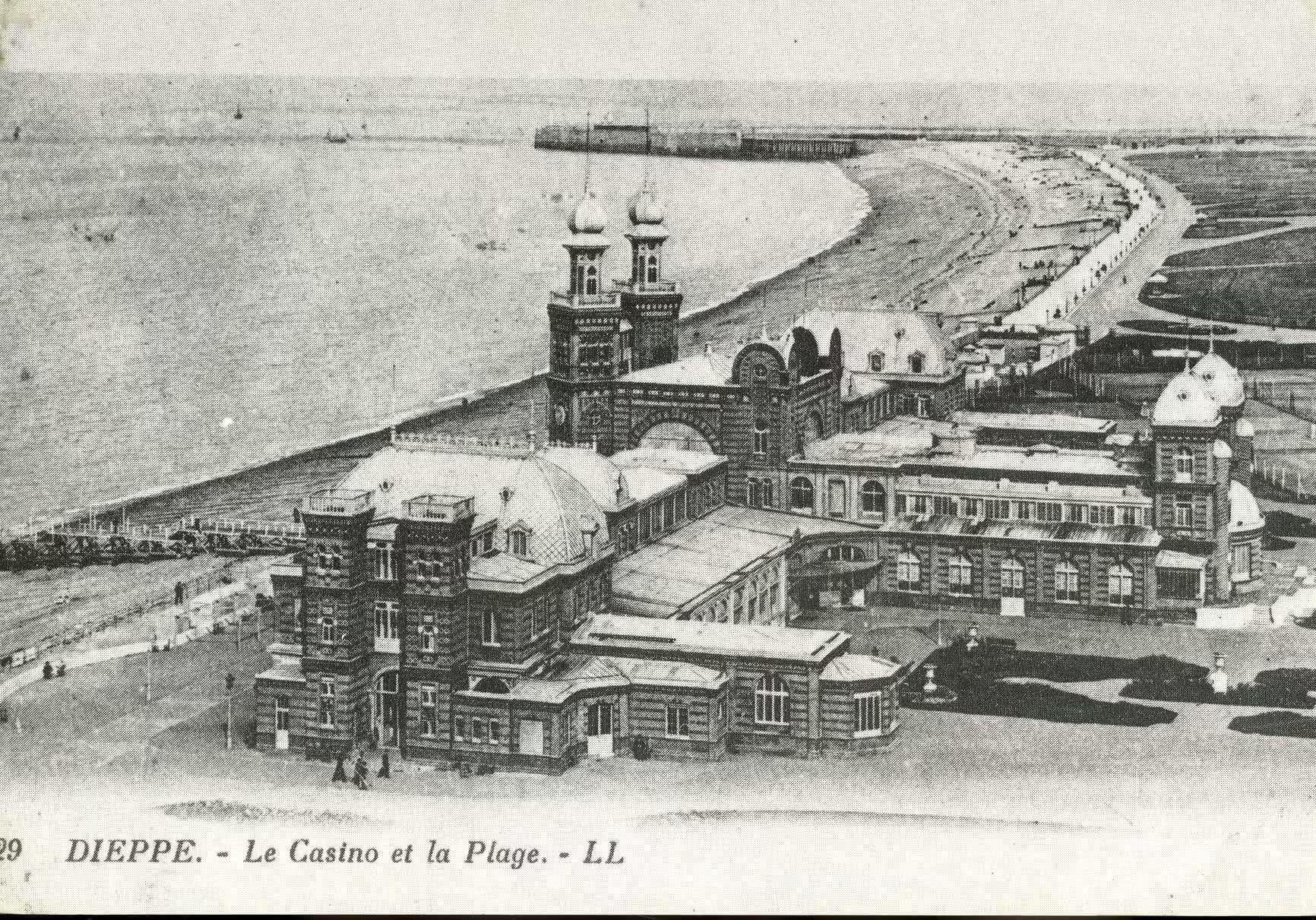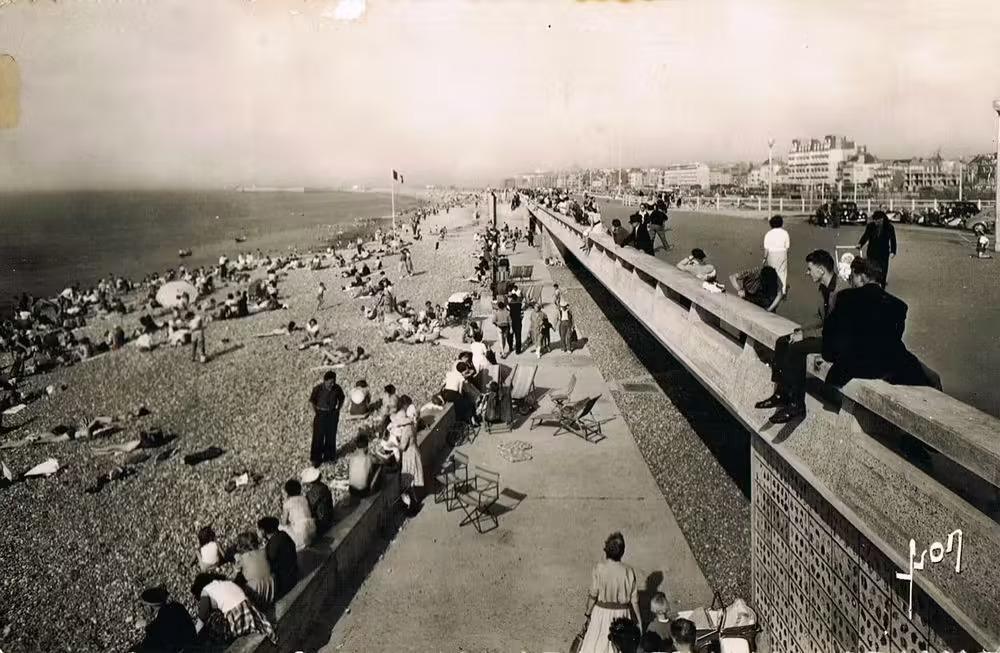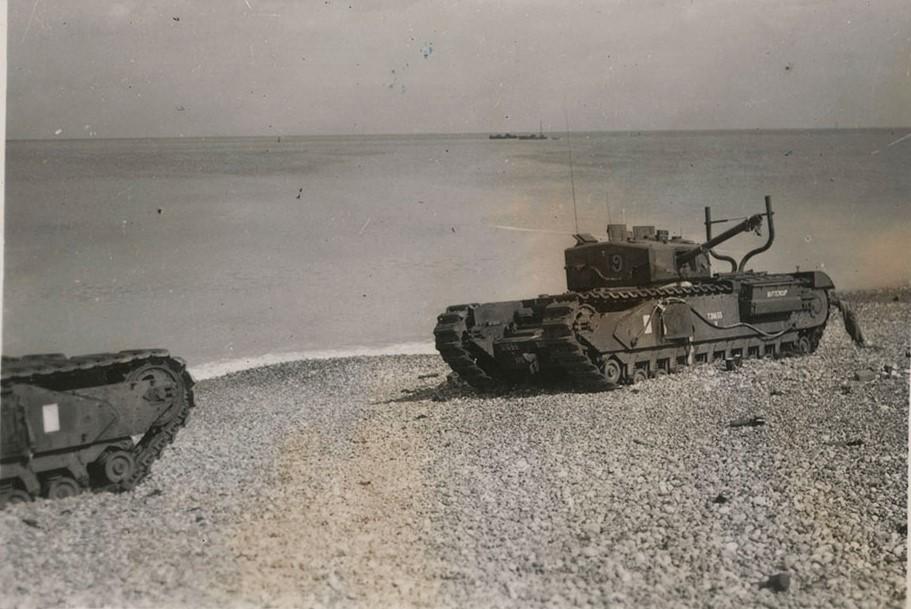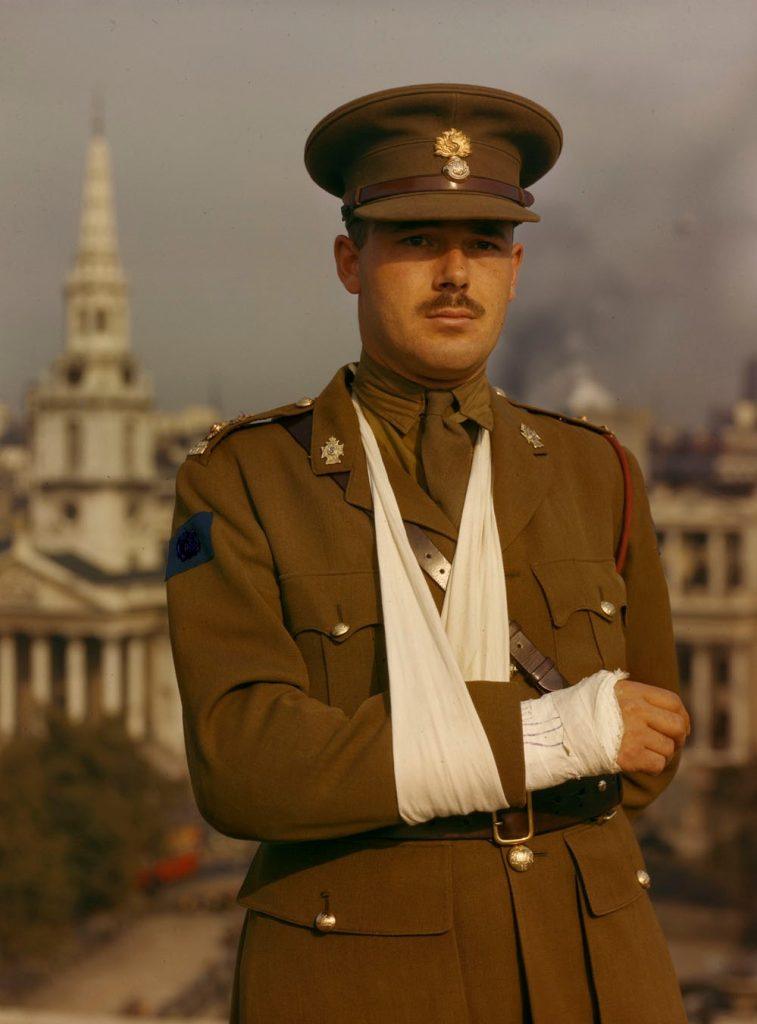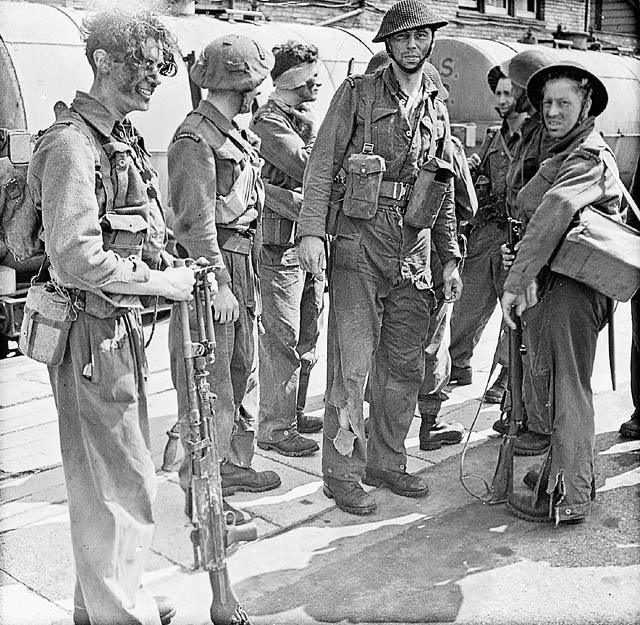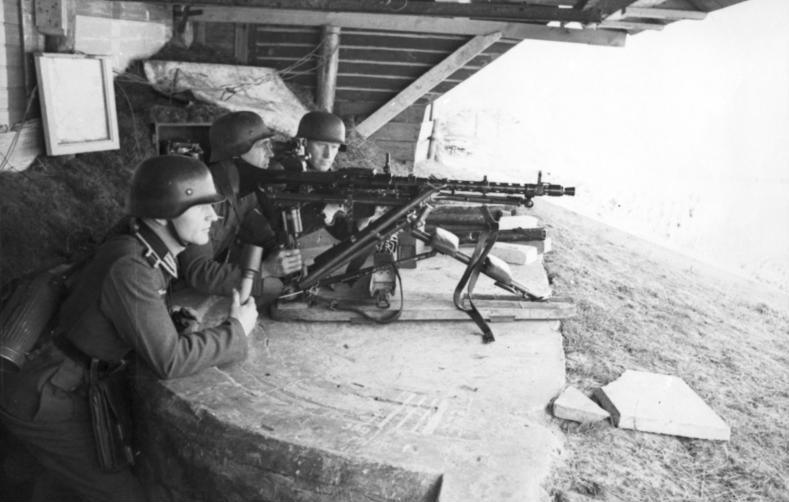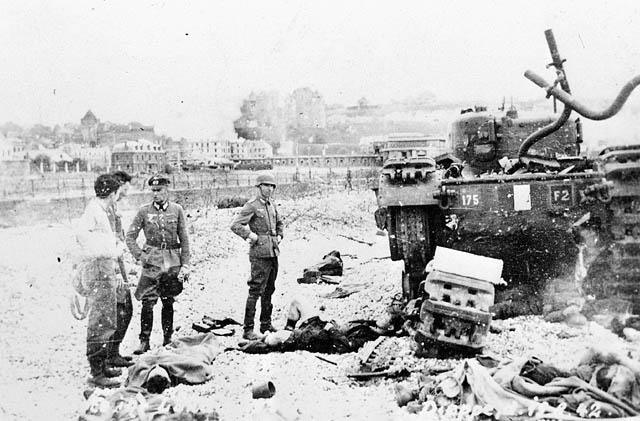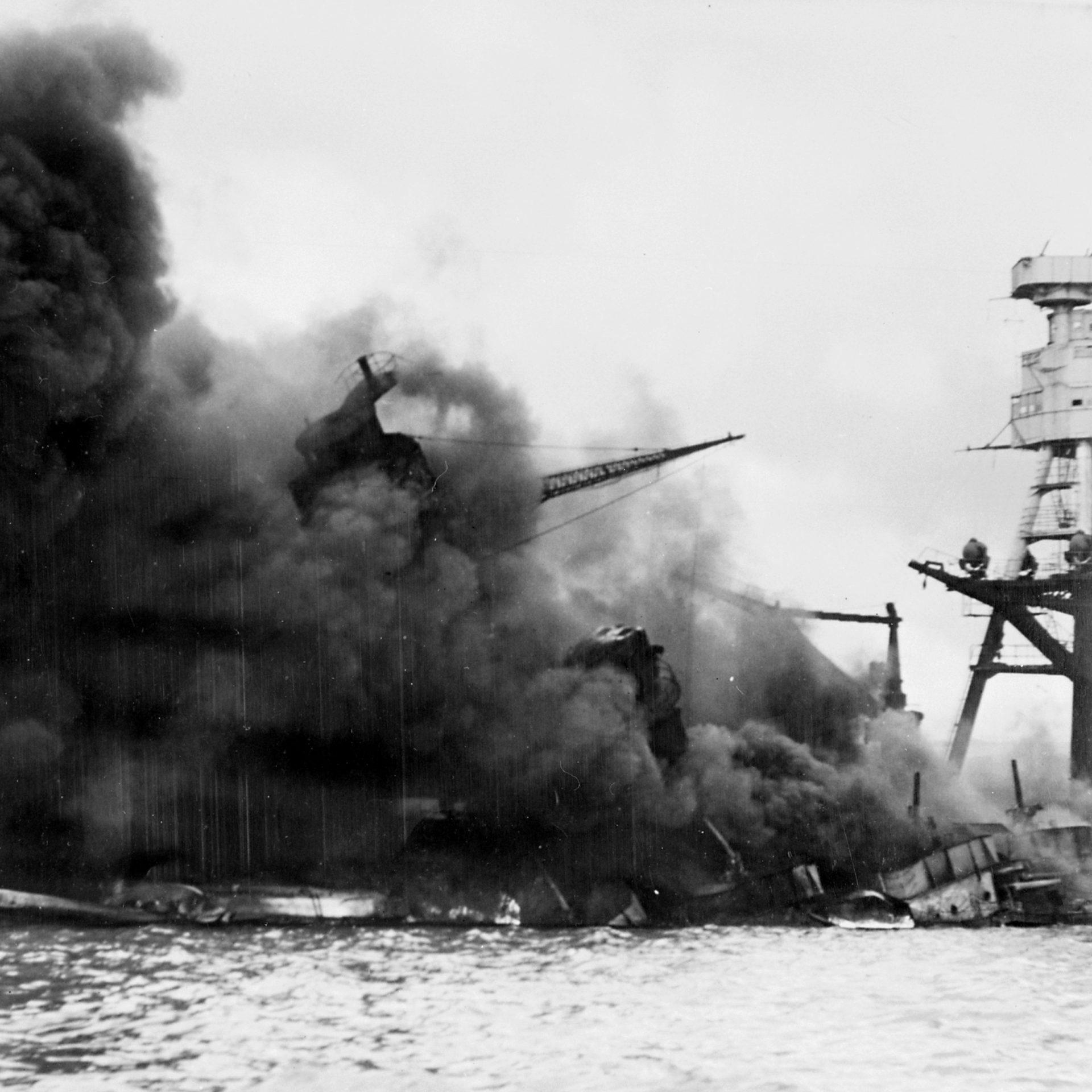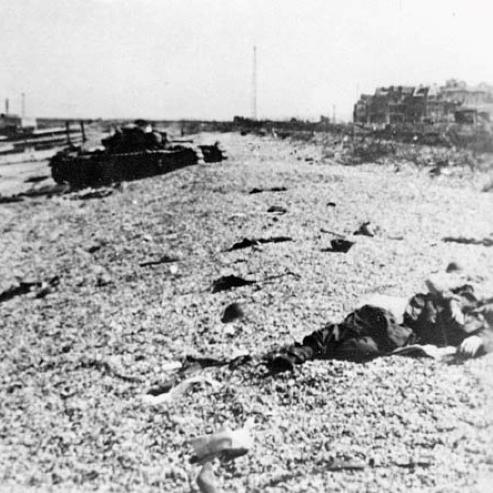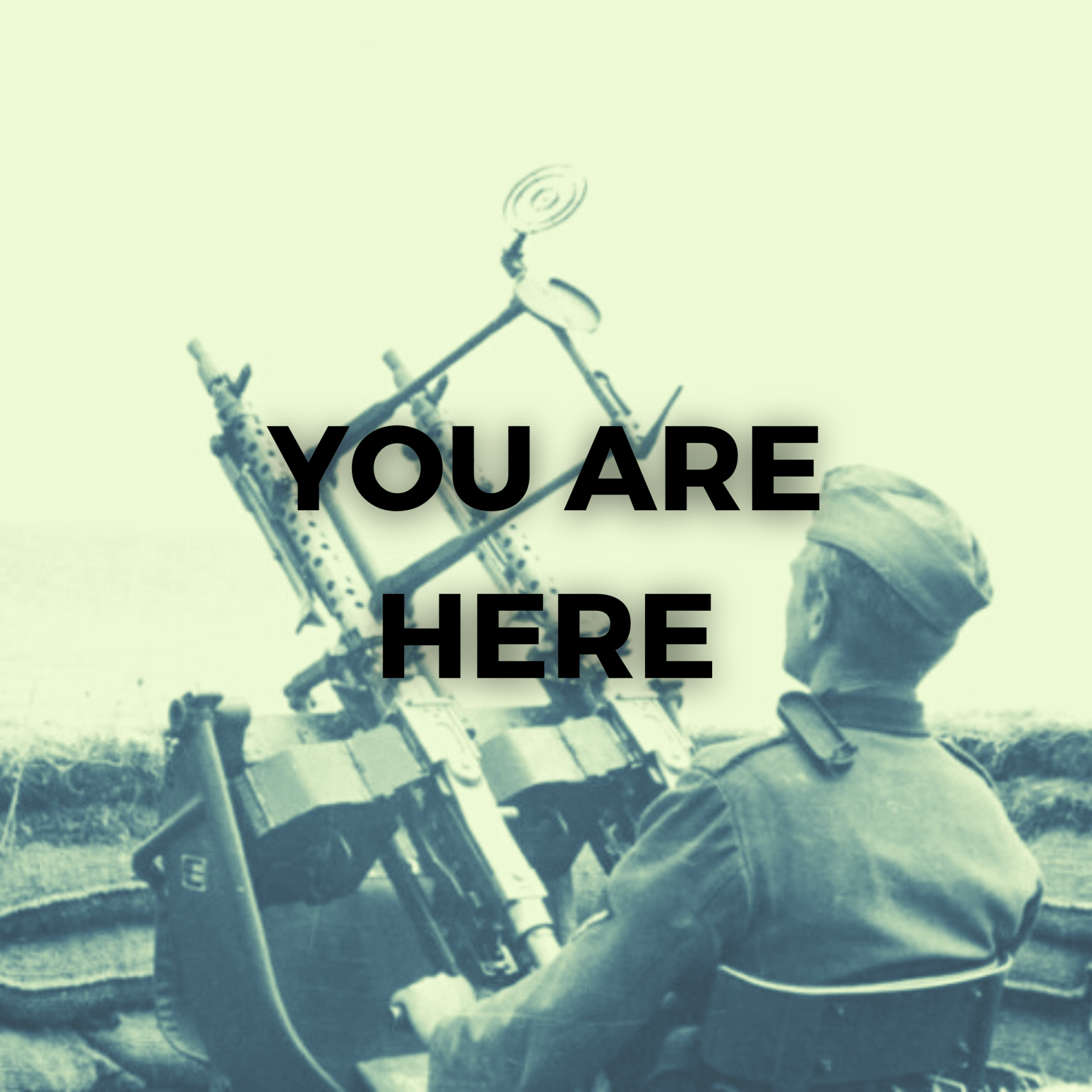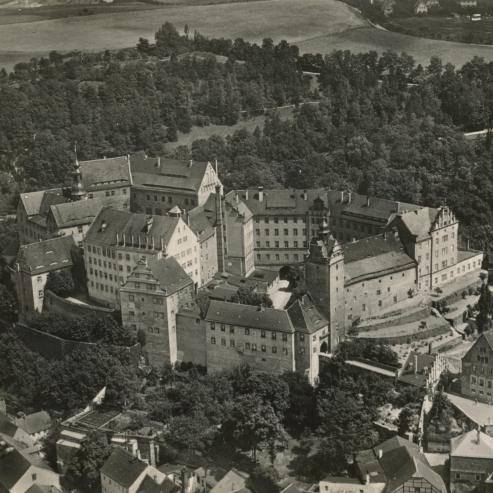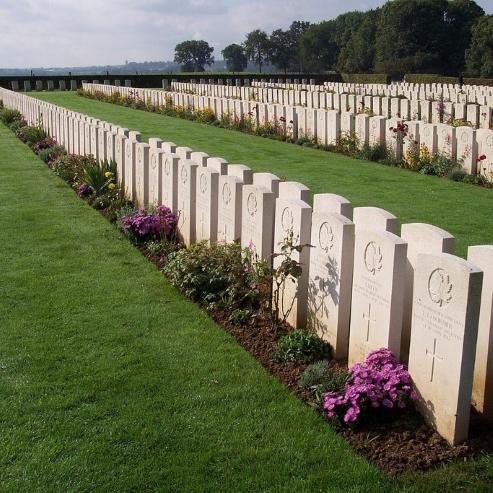ANATOMY OF A DISASTER
POOR PLANNING
The Dieppe Raid was badly planned by the COHQ. First, the organization greatly misjudged the German military defences. Many communication problems also occurred during the raid, which limited the soldiers’ ground manoeuvres. The commanders struggled to adapt to major unforeseen aspects during the raid. For example, the naval landing ended up being very haphazard, with many ships arriving late because they had been spotted by the enemy, or were berthed at the wrong position.
When planning the raid, the Allies received a lot of incorrect information about the German defences. The aerial photos were of poor quality and gave little clear information, which caused fatal errors during the landing. For example, at the time of the operation, the sun was facing the soldiers and blinded them. The Dieppe beach is also made of pebbles and not sand. This missed detail led to terrible consequences, as the tanks’ treads became blocked and prevented them from moving. In addition, each explosion created shrapnel that seriously injured the soldiers.
The deployed aircraft and ships also struggled to deliver support to the men on the beach. After a first sortie against the German defences, the air forces were soon kept busy fighting the Luftwaffe. Besides launching smoke screens, the ships were also limited as to what they could do, as the COHQ had decided against bombing to avoid damaging the city.
Above: As part of the information it collected for the raid, COHQ had old postcards showing the beach in Dieppe. Naturally, these postcards did not provide much information and were of little use for planning (source: personal collection).
“Far from having provided a necessary sacrifice for the Allied victory, the Dieppe fiasco is more akin to a vulgar blunder.”, Béatrice Richard, historian.
WHO WAS RESPONSIBLE FOR DIEPPE?
The raid created a lot of controversy. Many pointed to Lord Louis Mountbatten, Chief of Combined Operations, as the one responsible for the disaster. A member of the royal family and appointed to his post through his connections, Mountbatten had little military experience. Against the advice of many military experts, the majority of the planning was left to him. In July 1942, the first operation was cancelled at the last minute when ships carrying troops were spotted by the Germans, who went on high alert. However, this setback was not enough for Mountbatten to abandon his plan.
Mountbatten’s headstrong character was also an issue. Many described him as an image-conscious man who was more concerned about how the raid would bolster his reputation than about the military outcome. For example, Mountbatten was convinced the raid would be a success and invited many journalists to embed with the troops. When the operation ended in a complete massacre, he quickly pointed out that Jubilee would be very beneficial for future operations. After the Normandy invasion in 1944, Mountbatten was one of the first to claim that its success was largely due to the lessons learned at Dieppe.
In Canada, the responsibility of Generals Harry Crerar and Andrew McNaughton was also studied. After all, Crerar had long pushed for the Canadian government to send more troops to the front. His reputation was on the line after the disaster in Hong Kong in 1941 and then with the massacre at Dieppe. As for McNaughton, he was the one who approved the deployment of Canadian soldiers at Dieppe without assessing the risks.
“Apart from the military given in the outline plan, this operation will be of great value as training operation for […] any other major operation as far as the actual assault is concerned.”, Lord Louis Mountbatten, Chief of the Combined Operations, May 11, 1942.
“I decided then that those who planned this disaster had to be idiots.”, Jack A. Poolton, Captured at Dieppe, Royal Regiment of Canada.
THE GERMAN VIEWPOINT
For the German army, the defence of the Dieppe beach was a great victory. After the Allies withdrew from the first operation (Operation Rutter), the German defences were on high alert for a new attack. Their precautions proved them right. After Jubilee, the German army saw the Allies’ operation as a total failure that was poorly planned, disorganized, and utterly foolish. However, the German generals knew that the Allies would learn from their mistakes and come back better prepared.
The Wehrmacht was impressed by the sheer size of the army sent to Dieppe, and the total defeat of this force by German troops made even Adolf Hitler proud. The Dieppe Raid was then widely talked up in German propaganda during the war. The German media described the raid as a great British invasion on the continent. For an army mainly being pulled toward the eastern front, this news was good for troop morale.

